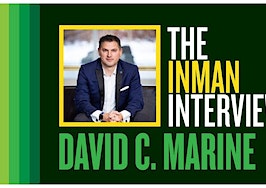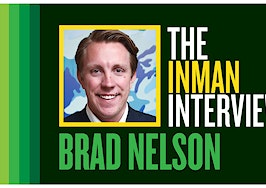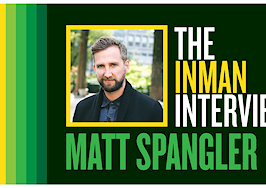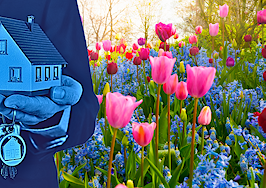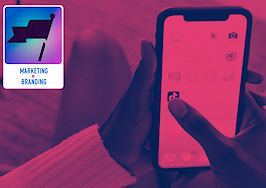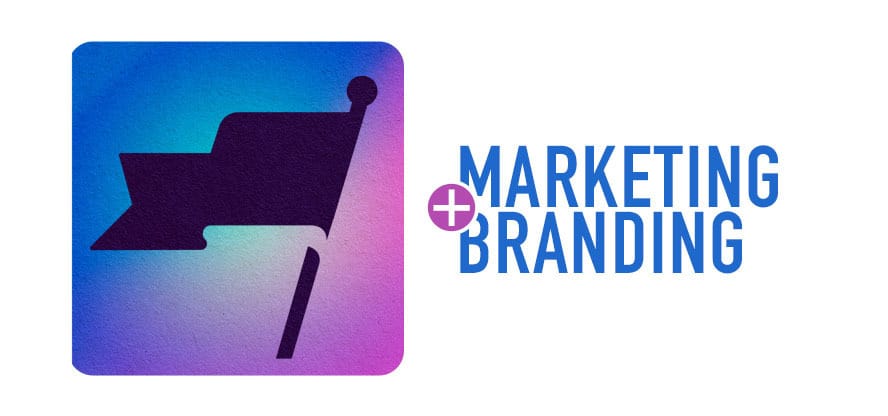 September is Marketing and Branding Month at Inman. That means we’re talking to the chief marketing officers at major brokerages about how the pandemic is changing their jobs and what it means for agents. We’re publishing a suite of tactical Inman Handbooks for marketing on digital portals. And we’re looking at what pages of the traditional marketing playbook still work. Join us all month long.
September is Marketing and Branding Month at Inman. That means we’re talking to the chief marketing officers at major brokerages about how the pandemic is changing their jobs and what it means for agents. We’re publishing a suite of tactical Inman Handbooks for marketing on digital portals. And we’re looking at what pages of the traditional marketing playbook still work. Join us all month long.
Realogy expansion brands Chief Marketing Officer Jen Marchetti’s entrance into the marketing world has been a winding road that began with an entry-level job at a burgeoning startup in the ’90s and led to her spearheading Wyndham Worldwide’s marketing efforts in the mid-2000s.
Little did Marchetti know, her experience with both brands would lead her to where she is now as CMO for Better Homes and Gardens Real Estate and ERA — two of the real estate industry’s most notable and innovative brands. During her tenure, she’s led two rebrands and crafted BHGRE’s innovative industry and consumer social media strategies.
“[My career] has been a happy set of circumstances,” she said. “I got started and I never looked back.”
Marchetti sat down with Inman to talk about her experience in the hospitality industry, how a psychology background has made her a better marketer, how she balances two brands, and how authenticity is at the heart of what she does.
This interview has been edited for length and clarity.
Inman: It’s a pleasure to talk to you, Jen. I read about your illustrious career in marketing, first in the hospitality industry, and then in real estate. However, you actually studied psychology and art history. What drew you to enter the marketing world instead?
Marchetti: I hope you like this answer because it’s a strange one. I was actually pre-med when I was in undergrad and I realized I couldn’t stand blood, so obviously, a career as a medical professional was going to be very limited. But I went to a great school that luckily was very much focused on a liberal arts education. Even if you were pre-med, you took all the classes, but you still got to enjoy other pursuits in your undergrad.
So out at Duke’s job fair, there were a lot of investment banking firms, a lot of consulting firms, and I’d gone down the interview track for all of those types of companies. There was this little tiny software company called Trilogy out of Austin, Texas, that set up a folding card table at our career fair when everyone else had a very fancy booth. They were looking for people who just had a desire to want to build something, and they hired about 30 of us from my school.
They hired us as generalists and then we started our on-the-job training. Because I love to write, I was placed in the PR and Investor Relations track and I learned a lot. When I look back on me as a 22-year-old in my first year in my career, and now, two-plus decades later, I sort of chuckle, but it is amazing how if you’re placed in an environment that capitalizes on your skillset and you’re given the chance to try things, you can set a path that you never thought you would set.
You’re right — that was quite the journey! Although you didn’t end up becoming a psychologist or art historian, I’d guess they still have an impact on you today. How does your background in those two areas impact how you approach marketing?
Absolutely, I would say that the psychology background is so interesting because if you were to look at my transcripts from school, I never took a single marketing class and I never took a single business class. I took Organic Chemistry, Biochem, Developmental Science, and the things that I needed for my major. But I will tell you that it’s helped me understand what motivates people to take action because so much of human behavior could be considered subjective or emotional.
When you distill it down to its parts, a lot of personality traits and motivations are wired and hardwired into [the] motivation that people have to pursue things like success, or comfort or safety or good health or to serve the most primitive parts of our brain, right?
When you think about Better Homes and Gardens Real Estate as a brand that is grounded in the concept of home and one’s passion for the home. And we’ve all experienced over the past few months how much more intense home has become for everybody.
Understanding what drives people, what motivates them, where they feel emotionally secure, why they make certain decisions gives me an appreciation for data and feedback. We’ve done a lot of research, and a lot of focus groups, both for our business-to-business marketing efforts and our business-to-consumer efforts, which is all grounded in my psychology background.
With respect to the Art History background, it wasn’t until I became a lead marketer in a brand that I started to appreciate composition and telling the story beyond just what’s on a canvas or on a social media gif, or on a pamphlet. That idea of symbolism, that idea of deeper meaning in art has helped drive the look and feel of both Better Homes and Gardens Real Estate and ERA.
For example, when you look at BHGRE, it’s all grounded in the aesthetic of the magazine, and we have put little easter eggs, if you will, in our marketing that gives a nod to that magazine. ERA is much more of a brand that’s focused on empowering the local entrepreneur because real estate started local. When we did our rebrand for ERA, we were very conscious to use aesthetic tools in our marketing, which reinforced that we are here to help local communities and local entrepreneurs.
For example, we created a grid on our on redesigned ERA brand, look, and feel, and that grid is there very purposefully. It is a design that adds dimension to our marketing, but most importantly, is a nod to the fact that real estate agents help consumers set on a new blueprint for their lives because it’s the home transaction.
Brokers help agents set up a new blueprint for their careers. Brands help brokers set up a new blueprint for their careers as owners of companies, and real estate professionals help build local communities. So you can look at that grid as a map or a blueprint.
Another little easter egg there is that ERA was originally called Electronic Realty Associates, and that little grid symbolizes a motherboard or a circuit board within someone’s computer or smartphone as a tribute to that technological beginning. So long story about how psychology and art history has helped me because it’s helped me look at things and people and motivation very differently.
It’s no problem — I appreciate longer answers. It gives me better insight into who you are. So, let’s get into your experience at Wyndham. I know the hotel and real estate industries borrow from each other all the time. What did you learn at Wyndham that you still use today?
I think a few different categories that I would respond to that with. I think the first category, fundamentally, is that when you have the opportunity to serve in a marketing role in a franchise organization, you bring with you this idea, whether it’s hamburgers or hotels or car rental or real estate, that you need to be a marketer who helps to make entrepreneurs’ lives easier.
So when you think about crafting your brand story or your brand aesthetic, you have an eye toward ‘Will this be easy and compelling for a local franchisee whether it’s a hotel, or a broker or an agent to use to be able to integrate into their local business?’ Because, again, a franchise relationship is one of choice.
If it doesn’t make their life better or easier, then you might as well not show up at work because you’re not doing your job. That does take a lot of energy, and a lot of dedication, whereas a lot of my friends who took the consumer packaged goods route, or the retail route, are laser-focused on inspiring end consumers with promotions and specials and offers to make decisions. But they’ve missed that other stakeholder.
I think the second piece is the emotional component. As you said, when you’re in the hospitality industry, there’s a spectrum of experiences you create. There are very transactional relationships a hotel might have with a business traveler who’s just happy to have a quiet, clean room and get their points or the client and who is hosting their wedding at your property and it’s one of the more important days of their life.
But, you and your staff need to go out of the way to make that memorable no matter what happens. Spending time with hoteliers and frontline employees at hotels, I learned very, very much about what that meant to create experiences and to create memories, and that is exponentially built upon in real estate.
There is no transaction that we will ever go through in our lives that’s more important and meaningful and truly momentous for our financial lives than buying a home. If you are not adding value beyond what they can find on their own, then that relationship will not be a long-lasting one.
What about your experience managing multiple Wyndham brands? I can definitely see how that’s prepared you to simultaneously guide BHGRE and ERA’s marketing.
So, the third thing that I’m so grateful for my experience at Wyndham was I had a portfolio of brands. There are very few ways you can differentiate a hotel product unless you have money to spend on a better sheet, bigger flat-screen TVs, or more high end you know shampoo in your shower. So it’s very much a dollars-and-cents [game] — how much you spent per room is what made you economy or midscale or an upscale luxury type of property, and then you have to deliver on that in a format way every single day.
Because I’ve been able to oversee portfolios in the past, where I feel like I’m at my best and having two brands now feel so much more natural to me. One, because I’ve been able to build brands within a portfolio and keep them very different and very unique. When you’re overseeing and helping to serve two brands, it makes you so laser-focused on finding cost efficiencies in places below the waterline that just help put more money back into the marketing fund that you can spend on behalf of your franchisees.
It also makes you more hyper-aware and hyper-focused on making sure everything above the waterline is truly and utterly unique down to the values of the brand and its DNA down to its fonts, colors, photography, and the way you bring it to market. I’m grateful for all of those experiences because they all have sort of coalesced in what I’m doing here at Realogy.
So, I’d like to go back to what you said about creating a positive experience for franchisees and consumers. What ways have BHGRE and ERA worked to make life easier for its brokers and agents during COVID? On the other hand, how have both brands enabled their agents to make life easier for consumers?
So I’ll start with some commonalities between the two brands and advice I’ve given because the irony, and it feels so ironic to say this, but in the last several months, we’ve been remote for lack of a better word. I almost feel as if I’ve had the opportunities to speak to more agents on a more regular basis than ever before because now everyone is so comfortable with Zoom calls or Google Meet or [Microsoft] Teams meetings.
A couple of things that I share with everybody is that you want to make sure that the way you brand as a real estate professional is sensitive and empathetic and respectful of what’s going on in people’s lives. Now, why that’s important to remind real estate agents of is because unlike in the hotel space, we cannot send our past clients an offer to buy a new house get the second one half-price as we could in the hotel area.
Real estate agents have been trained almost to go after as much business as possible, but because the transaction is so infrequent, oftentimes you see real estate agents in the industry trying to interrupt what people are interested in. You know, you might have seen some agents out there branding the seats in shopping carts that babies sit on or branding bus stops.
Luckily, with Better Homes and Gardens we have a lot of very relevant tools to help agents brand themselves, such as the cookbook, the customized subscription program, a slew of other wonderful marketing opportunities, including sending clients a one-year subscription to the BHGRE archive with a free room makeover by a virtual designer. So being a brand that’s tied to what is the American home, it’s a bit more, I guess you could say seamless to be part of the conversation of everyday life.
What makes ERA special is that it’s the brand that has prided itself and executed so beautifully on the idea of real estate offices, agents, and brokers are pillars of their local community. So I see giving and giving back as one of the greatest strengths of the ERA brand.
I can give you one great example. We had ERA brokers in New York and New Jersey that bought gift cards to local restaurants just to help the local restaurants have revenue and gave it to frontline workers. That had nothing to do with their day job. They didn’t care if they were to get a referral out of it; it was about giving back.
When a brand or network has such a natural, authentic gravitation towards something that is of value to the client, whether it be content and an inspiration to make the home that they’re now stuck in a little bit more beautiful, or a little bit more happy. Or that there are brokers and agents who are dedicated to making the community just a little bit more cohesive, are a little bit stronger or a little bit more hopeful.
That’s where we try to encourage people to stop going after the next hunt and, instead, be a meaningful part of your clients’ lives and your communities’ lives in whatever way is authentic to you. On the BHGRE side, I told agents to send people the [Better Homes and Gardens] cookbook because they’re all cooking now and they probably need inspiration.
On the ERA side, it’s a great idea to buy gift cards from local restaurants and drop them off at your client to take cooking off their shoulders when they’re dealing with homeschooling and their job. So we just reminded people to be authentic, to get back to their roots, and to support their spheres and their communities and to be very thoughtful about how they marketed.
A common theme I’ve noticed with each of the CMOs I’ve interviewed this month is authenticity, which clearly takes a bit of soul searching and self-awareness. What questions would you tell an agent or broker to mull over as they’re on the journey of creating an authentic brand?
You know, I would say that that dilemma might be faced more with agents and brokers who maybe have not been part of a brand in the past because ideally, the brand gives them both a framework of branding and marketing but also some direction that they can make their own. What I also tell people, whether they’re independent brokers or agents or whether they’re part of my own family within my brand, is that no matter who you are, you never stop evolving. The protocols that we go through as a brand are no different than the protocols that any independent entrepreneur can go through.
First, start by looking really, really hard in the mirror and assessing what your strengths are and what your opportunities are. You gather feedback from people you trust, as well as people who didn’t choose you, or didn’t work with you the second time, because you need all of that feedback to understand where your strengths are, where your opportunities are, where your value comes through, and where it falls short.
Then you look at where you want to be [and] where do you want to bring your business? Do you want to raise your average sales price? Do you want to go into new markets or neighborhoods? Then you figure out ways to do that based on what you believe you can control because no brand can succeed if their go-to-market strategy is not authentic and tied to who they actually are. That’s why when you hear me talk about BHGRE and ERA, you hear me talking about them so differently, and the tactics and the strategies being so, so different. If I tried to make them similar, it wouldn’t work.
Once you’re done with that soul searching, and that feedback and that goal setting, then you really need to think about, ‘Is what I will offer different than what other people are offering who I compete with?’
You know, if BHGRE launched back in 2008 and there were other lifestyle, home-centric real estate brands, it would have been a very different trajectory for that brand. You know, if ERA ever lost sight of its dedication to communities, it would be a very hard road for that brand because its core strengths are so so clear.
Don’t ever try to be someone else because they’re successful. You can be successful by being yourself, just by finding a new way to bring value.
Lastly, what is your vision for BHGRE and ERA for 2021? How do you imagine both brands will create a stellar experience for real estate professionals and consumers alike in such an unpredictable landscape?
So I think the “how” is a two-parter. BHGRE is real estate’s lifestyle brand, and so continuing to offer inspiration and relevant content to help prospective buyers and sellers make good decisions and also help new homeowners make good decisions about how to make a new house into a home [is our focus].
For ERA, it’s about empowering local communities to thrive through helping consumers find their homes through good services. But very importantly, ERA is so much about making sure brokers and agents are as productive and successful and empowered as they can be because if they are, then they will do great things for their clients and their communities.
So I think it’s the same answer, which is never forgetting what has made them successful and honoring that. What I love about this industry is despite everything going on in the world, people still need to move. They still need to find a home, they still need to start a new chapter of their life, and our brands are always ready to help. That’s a beautiful thing.


